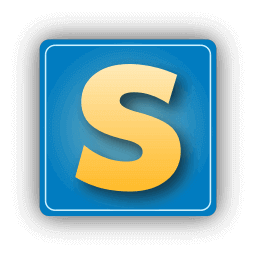
Puppy Linux is a lightweight, open-source operating system based on GNU/Linux. Designed for ease of use and minimal resource requirements, Puppy is a fully functional distribution bundled with a wide range of applications suitable for everyday tasks.
Despite its small size, Puppy Linux can boot from various media, making it ideal as a rescue disk, demo system, or for reviving old computers.
Puppy Linux helps you save money while accomplishing more, including tasks like recovering data from damaged PCs or removing malware from Windows systems.
It offers two graphical server options: X.Org (full-featured) and Xvesa (lightweight), with a wizard guiding users through setup based on their hardware.
How is Puppy Linux Different:
- Puppy Linux’s small size of around 400MB leads to several useful and distinctive features.
- ‘Live’ booting from CDs, DVDs, USB flash drives, and other portable media.
- Running from RAM makes Puppy Linux exceptionally fast, even on older PCs and netbooks with solid-state storage media.
- It has minimal system requirements.
- Boot time is well under a minute, 30-40 seconds in most systems.
- Includes various applications: word processors, spreadsheets, internet browsers, games, image editors, and many utilities, with additional software available as dotpets.
- Puppy is easy to use and requires minimal technical knowledge. Most hardware is automatically detected.
Puppy Linux was initially released in June 2003 by Barry Kauler. Its community-driven development model, characterized by its organic nature and lack of formal structure, encourages newcomers to be a driving force behind the project’s evolution. The LGPL license governing Puppy ensures its open-source status, granting users the freedom to modify, distribute, and use the operating system as they see fit.
Puppy Linux is a Live CD Linux distribution designed for small size and ease of use. If a computer has at least 64 MB of RAM (or up to 256 MB, depending on the version), the entire operating system and all applications run from RAM. This capability allows users to remove the boot medium once the operating system has started.
Puppy Linux includes applications like SeaMonkey, AbiWord, Gnumeric, and Gxine/xine. Warren Willson and other community members are actively developing the distribution. As an independent Linux distribution, Puppy is not based on Debian, Fedora, or other major distros.
Puppy’s goals:
- Puppy will easily install to USB, Zip, hard drive, or other storage media.
- Extremely friendly for Linux newbies.
- Puppy will boot up and run extraordinarily fast.
- Booting from a DVD (or CD), Puppy can save all work to the DVD (CD).
- When booting from a USB flash drive or other flash media, Puppy minimizes write operations to extend the lifespan of the storage device.
- Puppy operates seamlessly, without any hassles.
- Puppy will breathe new life into old PCs.
- Here are all the applications that you need for daily use
- Puppy will load and run totally in RAM for diskless thin stations.
Puppy Linux 9.5 “Fossa” Release Notes:
The most significant recent changes in woof-CE include:
Features include:
- Kernel 5.4.53
- Modular build means you can swap out the kernel, applications & firmware in seconds
- Desire a minimal, bare-bones Puppy? Remove a single file and reboot.
- Joe’s Window Manager (JWM).
- Rox-Filer.
- Hexchat.
- Palemoon Browser.
- MPV, Deadbeef & Gogglesmm (good for large music collections) media players.
- Claws Email.
- Quickpet.
- Osmo.
- Abiword.
- Samba.
- Lots of in-house puppy-specific applications such as Pburn, PuppyPhone, Find’n’run, Take A Gif, Uextract, Packit, Dunst-config, Picom-gtk, Transtray, Janky Bluetooth, Change_kernels, JWMdesk, YASSM, Redshift, SimpleGTKradio.

